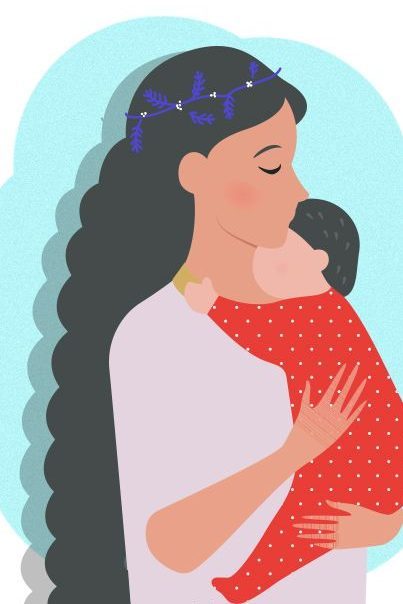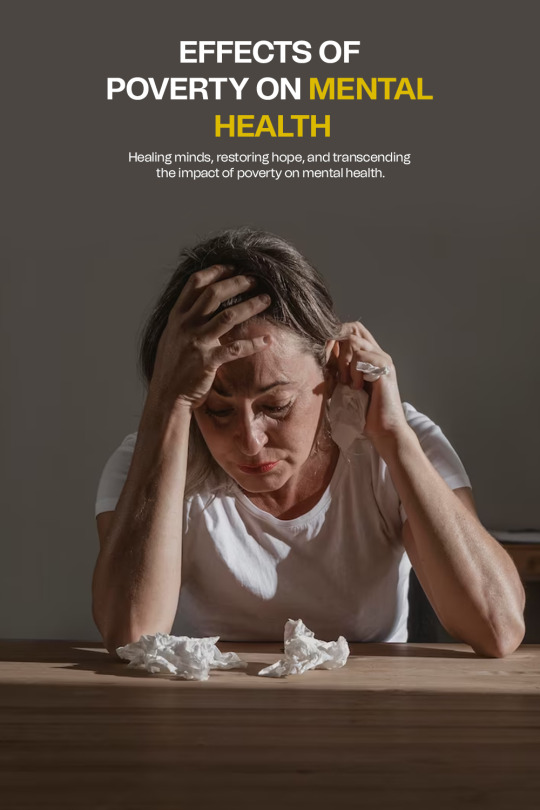#BreakingTheCycle
Text
But even in the symphony of suffering, a defiant melody plays on, whispering of a future where healing will be my choice and hurting... my fate :)
EkB
#darkpoetry#internalstruggle#healingjourney#hopeinthedark#defianceagainstpain#chooserecovery#emotionalresilience#symphonyofsuffering#hauntinglybeautiful#scarredbutstronger#bruisedbutblooming#whispersoffreedom#phoenixfromtheashes#redemptionarc#breakingthecycle#ownthepainhealthefuture#symphonyofthornsbloomingintohope#choosinghealingoverhurtingfate#dancingwiththewoundsbutnevertotheirtune#scarswhisperofstrengthnotfailure#defiantmelodyagainstthepainfulsong
2 notes
·
View notes
Text

7 notes
·
View notes
Text

Nasha Mukti Kendra: Helping Individuals Overcome Addiction
Addiction is a complex issue that affects millions of individuals worldwide. It not only impacts the individual but also their family, friends, and community.
visit:- https://avtarnashamuktikendra.com/government-nasha-mukti-kendra-in-india/
#AddictionRecovery#SayNoToDrugs#DrugRehabilitation#Sobriety#DrugFreeLife#RehabilitationCenter#DrugAddictionTreatment#BreakingTheCycle#CleanLiving#RoadToRecovery
2 notes
·
View notes
Photo

#itendswithus #colleenhoover #breakingthecycle #selfhealing https://www.instagram.com/p/CowuEMNIzwAY5qvMIHtYxtNoV1bIP85SaYLauY0/?igshid=NGJjMDIxMWI=
4 notes
·
View notes
Photo

🥀🌹 // #freeflowing piece for this Wednesday. Open tag! • • #MBS #poem #poetry #poetsofinstagram #poetsofig #poetrycommunity #poet #unhappy #breakingthecycle #writer #writingcommunity #writing #writerscommunity #writersofinstagram #writtenword #spilledink #spilledthoughts #instapoet #instapoetry https://www.instagram.com/p/CoIBE5YuggU/?igshid=NGJjMDIxMWI=
#freeflowing#mbs#poem#poetry#poetsofinstagram#poetsofig#poetrycommunity#poet#unhappy#breakingthecycle#writer#writingcommunity#writing#writerscommunity#writersofinstagram#writtenword#spilledink#spilledthoughts#instapoet#instapoetry
5 notes
·
View notes
Text
1 note
·
View note
Text

Homelessness is a growing issue in many countries, and one group that is particularly vulnerable to this problem is transgender youth. These are young people who identify as a gender different from the one assigned to them at birth. According to a study by the National Center for Transgender Equality, 20% of transgender individuals have experienced homelessness at some point in their lives. This number is even higher for transgender youth, who often face rejection and discrimination from their families and communities, leading them to leave home in search of safety and acceptance.
Homeless trans youth face a unique set of challenges that make their situation even more difficult. Many shelters and services are gender-segregated, which can be a barrier for transgender individuals who may not feel comfortable in either the male or female designated spaces. This can leave them with nowhere to turn for shelter and support. In addition, transgender youth are at a higher risk of physical and sexual violence while living on the streets, as they are often targeted by predators who see them as easy targets.
The lack of acceptance and understanding from society also contributes to the struggles of homeless trans youth. Many face discrimination and harassment when trying to access basic necessities such as healthcare, education, and employment. This can make it even harder for them to break out of the cycle of homelessness and poverty. As a result, many trans youth turn to survival sex work or other dangerous means to meet their basic needs, putting them at further risk of exploitation and abuse.
Furthermore, the mental health of homeless trans youth is also a major concern. The constant fear of violence and rejection, along with the stress of not having a stable place to live, can lead to high rates of depression, anxiety, and suicide among this population. Without proper support and resources, these young individuals may feel like they have no hope for a better future.
It is crucial for society to recognize and address the specific challenges faced by homeless trans youth. This includes providing safe and inclusive shelters, as well as implementing policies and programs that promote acceptance and understanding of transgender individuals. Education and awareness are also key in reducing discrimination and creating a more welcoming environment for trans youth.
In addition, it is important for families to support their transgender children and provide a loving and accepting home. This can greatly reduce the risk of homelessness and improve the overall well-being of these young individuals. Governments and organizations also have a responsibility to provide resources and support for homeless trans youth, including access to mental health services, education, and job training programs.
Homeless trans youth deserve the same opportunities and rights as any other young person. It is our collective responsibility to ensure that they are not left behind and that they have a chance to thrive and reach their full potential. By addressing the root causes of homelessness and promoting acceptance and inclusion, we can create a safer and more equitable society for all.
0 notes
Text
In a book by Joseph N. Waddy, the author digs into the sensitive topics that might make adults squirm uncomfortable but are some children’s reality. It’s a book that covers Joseph’s childhood trauma, giving readers a glimpse into the pain he’s lived with and had to cope with...
0 notes
Text
Breaking the Cycle: Strategies to Overcome Bad Money Habits and Create Lasting Change

Are you tired of being stuck in a never-ending cycle of bad money habits? Do you want to break free and create lasting change? Look no further! In this article, we will explore effective strategies to overcome your bad money habits and take control of your financial future.
Managing money can be challenging, especially when we fall into unhealthy patterns and habits. But the good news is, with the right mindset and strategies, it's possible to break free from these patterns and create positive change.
Understanding the cycle of bad money habits
Bad money habits often develop over time and become deeply ingrained in our behavior. It's essential to understand the underlying cycle that keeps us trapped in these habits. The cycle typically starts with a trigger, such as stress, boredom, or a desire for instant gratification. This trigger leads to impulsive spending or overspending, which then results in guilt, stress, and financial instability. Unfortunately, these negative emotions often lead to seeking comfort in spending again, perpetuating the cycle.
To break free from this cycle, we must first recognize the patterns and triggers that lead to our bad money habits. By understanding the root causes, we can develop strategies to combat them effectively.
#breakingthecycle#overcomebadmoneyhabits#createlastingchange#moneymanagementtips#financialfreedomjourney#personalfinancegoals#financialhabits#moneymanagementstrategies#financialtransformation#financialwellbeing
0 notes
Text
Toxic parenting practices: The epidemic silently destr0ys lives
Parenting is often considered one of life’s most rewarding and challenging experiences, but Toxic Parenting is something most destroying. It shapes our children’s futures, shapes their character and gives them the tools to navigate the world. However, not all parenting activities are positive and rewarding. Toxic parenting is a term used to describe harmful and destructive parental behaviors that…

View On WordPress
#BreakingTheCycle#EmotionalAbuse#EmpowermentThroughTherapy#EndToxicPatterns#HealingFromToxicity#HealingTrauma#MentalHealthMatters#MentalWellness#ParentingRecovery#ReclaimingSelf#SelfLoveJourney#SupportiveRecovery#SurvivorStories#toxicity#Toxicparenting
0 notes
Text
How Trauma Affects Children's Development
Trauma is unfortunately a common experience for many children, whether from physical, emotional, or sexual abuse, neglect, natural disasters, or other events beyond their control. Sadly, the effects of trauma can last a lifetime if not addressed properly, affecting their physical, cognitive, emotional, and social development in profound ways. As parents, guardians, or foster care parents, it's crucial to recognize the signs of trauma in children and seek professional help if needed. In this blog, we will explore the statistics on how trauma affects children's development, as well as some scriptures that offer hope and healing.
The Physical Impact of Trauma on Children:
The effects of trauma on the body can be severe and long-lasting, even affecting the brain's development. According to the National Child Traumatic Stress Network, "trauma can lead to changes in the brain's structure and function… creating long-lasting physical and emotional conditions." These conditions may include sleep disturbances, chronic pain, headaches, digestive problems, depression, anxiety, and post-traumatic stress disorder. Studies indicate that children who experience trauma are at higher risk of developing chronic physical conditions such as heart disease, diabetes, and obesity. Scriptures that can relate to this include Psalm 147:3, which says, "He heals the brokenhearted and binds up their wounds."
The Cognitive Impact of Trauma on Children:
Trauma can impair children's ability to think, learn, and process information, affecting their academic performance and future prospects. According to the American Psychological Association, "trauma can interfere with cognitive development, intellectual functioning, and academic achievement." Children who experience trauma may have difficulty with attention, memory, problem-solving, and decision-making skills. They may also struggle with executive functioning, such as planning, organizing, and regulating emotions and behaviors. Studies indicate that trauma can reduce the size of the hippocampus, the part of the brain responsible for memory and learning. Scriptures that can relate to this include Isaiah 26:3, which says, "You will keep in perfect peace those whose minds are steadfast because they trust in you."
The Emotional Impact of Trauma on Children:
Trauma can leave lasting emotional scars that affect the way children interact with others and themselves. Children who experience trauma may struggle with trust, self-worth, and relationships. They may feel isolated, lonely, angry, or sad, and have trouble regulating their emotions and expressing their feelings. Children who experience trauma are at higher risk of developing mental health conditions such as depression, anxiety, and borderline personality disorder. Studies indicate that trauma can affect the production and regulation of hormones such as cortisol and oxytocin, which play a crucial role in emotional functioning. Scriptures that can relate to this include Psalm 34:18, which says, "The LORD is close to the brokenhearted and saves those who are crushed in spirit."
The Social Impact of Trauma on Children:
Trauma can also affect children's abilities to form healthy relationships and succeed in social contexts. Children who experience trauma may struggle with social skills such as communication, empathy, and problem-solving. They may also exhibit avoidant or aggressive behaviors, and have difficulty creating and maintaining friendships. Children who experience trauma are at higher risk of dropping out of school, engaging in substance abuse, and becoming involved in the criminal justice system. Studies indicate that trauma can affect the development of the prefrontal cortex, the part of the brain responsible for social cognition and empathy. Scriptures that can relate to this include John 14:27, which says, "Peace I leave with you; my peace I give you. I do not give to you as the world gives. Do not let your hearts be troubled and do not be afraid."
Trauma is a significant concern for children's development, and it can have long-lasting effects on their physical, cognitive, emotional, and social well-being. However, it's essential to remember that healing is possible with early intervention, professional help, and a supportive community. As we have seen, there are many scriptures that offer hope and comfort to those who have experienced trauma. As parents, guardians, or foster care parents, it's crucial to recognize the signs of trauma in children and provide a safe and loving environment for them to grow and heal. Let's work together to break the cycle of trauma and create a brighter future for our children.
#ChildTrauma#TraumaEffects#HealingJourney#ChildDevelopment#EmotionalHealing#CognitiveImpact#PhysicalWellBeing#SocialDevelopment#HopeAndHealing#ScripturesOfHope#TraumaAwareness#SupportForChildren#BreakingTheCycle#MentalHealthMatters#ChildWellness#CreatingABrighterFuture
0 notes
Text
The World of Unvoiced Feelings: Understanding the Power of Silent Emotions
Feelings and emotions are intrinsic to the human experience. They shape our perceptions, interactions, and overall well-being.
#BreakingtheCycle#OvercomingBarrierstoExpression#EmpathyandUnvoicedFeelings#ImpactonMentalandEmotionalWellbeing#StrategiestoRecognizeUnvoicedFeelings#TheArtofExpressingUnvoicedFeelings#TheNatureofUnvoicedFeelings
0 notes
Text

Within a narcissistic mother-daughter relationship, lovebombing takes on a deceptive form. It involves the abuser showering excessive praises, bestowing gifts, and feigning affection, all with a hidden agenda to gain control and exploit. Let's expose this manipulative tactic, support one another, and break free from its grip. Together, we reclaim our worth and cultivate authentic connections based on genuine love, respect, and honesty. Remember, you deserve authentic love and nurturing relationships.
#Lovebombing#NarcissisticMother#Manipulation#FalseAffection#GiftsAndPraises#BreakingFree#ReclaimingIdentity#EmotionalManipulation#HealingJourney#ValidationMatters#SettingBoundaries#EmotionalHealing#SupportAndValidation#ToxicFamilyPatterns#NarcissisticTraits#AuthenticConnections#FindingOurVoice#SelfLoveFirst#BreakingTheCycle#EmbracingAuthenticity#HealingAndGrowth#BuildingResilience#SelfWorth#UnmaskingManipulation#HealingFromWithin#BreakingFreeTogether#HealthyRelationships#TransformingPain#InspiringChange#emotionalwellbeing
1 note
·
View note
Text
Breaking the Cycle: How to Overcome Weight Loss Plateaus
Weight loss plateaus can be frustrating and demotivating, but they are a common part of the weight loss journey. Don't let them discourage you! In this article, we will explore effective strategies to break through weight loss plateaus and continue making progress towards your goals.

Assess Your Current Routine: Take a closer look at your eating habits, exercise routine, and lifestyle factors. Identify any areas where you may have slipped into old habits or become too comfortable in your routine.
Calorie Adjustments: As your body adapts to your current calorie intake, you may need to make adjustments. Calculate your daily calorie needs and consider reducing your intake slightly to create a calorie deficit again.
Nutrient Cycling: Incorporate nutrient cycling by varying your macronutrient ratios or calorie intake throughout the week. This can help prevent your body from adapting to a consistent routine.
Introduce New Workouts: Shake up your exercise routine by trying new activities or increasing the intensity of your workouts. Challenge your body with different exercises to keep it guessing and prevent adaptation.
Strength Training: Increase your focus on strength training exercises. Building lean muscle mass can boost your metabolism and help you burn more calories, even at rest.
Track Your Progress: Keep a detailed record of your food intake, exercise, and measurements. This will help you identify patterns and make necessary adjustments to get back on track.
Mindful Eating: Pay attention to your hunger and fullness cues. Eat slowly and savor each bite. Avoid mindless snacking and emotional eating, which can contribute to weight loss plateaus.
Hydration: Stay hydrated by drinking plenty of water. Water can help with digestion, metabolism, and overall body function, aiding in weight loss efforts.
Manage Stress: High stress levels can hinder weight loss progress. Incorporate stress-management techniques such as meditation, yoga, or engaging in hobbies to support your overall well-being.
Stay Positive and Patient: Remember that weight loss plateaus are normal and temporary. Stay positive, trust the process, and be patient with yourself. Celebrate non-scale victories and focus on overall health and well-being.

Breaking through a weight loss plateau requires a combination of adjusting your routine, challenging your body, and maintaining a positive mindset. With determination and perseverance, you can overcome plateaus and continue your weight loss journey.
#weightlossplateau#breakingthecycle#calorieadjustments#nutrientcycling#newworkouts#strengthtraining#trackyourprogress#mindfuleating#hydration#stressmanagement#positivity#patience
0 notes
Text

Poverty can have profound effects on mental health. The constant stress, lack of resources, and limited access to quality healthcare can contribute to increased rates of anxiety, depression, and other mental health disorders. Individuals facing poverty often experience social isolation, stigma, and feelings of hopelessness. Understanding the impact of poverty on mental health is crucial for implementing effective support systems and advocating for social change.
0 notes
Text
youtube
Learned Helplessness - How you're unconsciously destroying your life
#LearnedHelplessnessAwareness#BreakingTheCycle#UnconsciousSabotage#TakeControlOfYourLife#OvercomingHelplessness#EmpowermentOverVictimhood#ChangeYourMindset#BreakingFreeFromHelplessness#EmbraceYourPower#VictimToVictor#ConqueringLearnedHelplessness#Youtube
1 note
·
View note